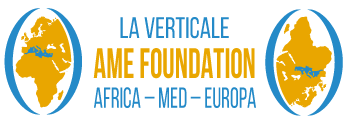The African youth is in turmoil. It seeks a future that is embodied in the creation of employment. This situation threatens to deteriorate: some experts predict that by 2050 there will be 450 million young people looking for a job and based on the 2016 growth rate, which was very high, only 25o million jobs will be created – leaving 200 million young people unemployed. Action is urgently needed! This cannot go on! It seems to me that two decisions could be made quickly, especially in the context the upcoming EU-AU Summit.
The first decision would consist in having the States, the regional communities, and the African Union, collectively decide that the priority of priorities is to industrialize Africa through the local processing of its raw materials. The Continental Free Trade Area, which recently came into force, offers for the first time the concrete possibility of developing an internal African market in the service of growth that is less dependent on the external world and where synergies and economies of scale will be possible. In this context, the creation of Special and Secure Economic Zones would play a fundamental role in accelerating and facilitating investment, both domestic and foreign. We have the example of Chinese industrialization, which has benefited from this. Africa still needs to define its own model to adapt it to its economies and its realities.
According to UNIDO statistics, there are currently 237 Special Economic Zones in Africa for a population of 1 billion 300 million. At the same time, for a roughly identical Chinese population, there are 2,546 Special Economic Zones. But it is not only a question of quantity, but rather of the quality of these zones. Too often, institutions that address the issue of industrial development emphasize financial conditions (loan, credit, taking risks into account). These conditions are certainly necessary but not sufficient if the technical and environmental conditions required to have availability of factors of production are not met.
However, in Africa, the presence of these factors – such as access to water, electricity network, logistics network, the presence of a qualified workforce, proximity to markets, etc – is rare.
This is why the construction of Special and Secure Economic Zones where as many as possible of these factors are geographically gathered is an absolute necessity. These are not closed and exceptional areas, exempt from taxation and duties. These areas are open and of synergy, bringing together factors of production to create competitive African production chains. Creating and filling these Special and Secure Economic Zones adapted to African realities in a relatively short time is a new challenge for international cooperation.
This is why Europe, which is “our natural partner”, should decide to support African countries that would like to embark on this path and mobilize its companies for this purpose.
The second decision that the European Union and the African Union should take is to define and implement a common Euro-African industrial policy with a horizon of at least ten years. In this context, we could create a Euro-African model of Special Economic Zones that is efficient and sustainable. This new Euro-African model to be promoted should not only facilitate investments, but above all develop the supply structures (services, training, human capital, research, digital interconnections, etc.) to be integrated into Euro-African and intra-African value chains.
I spoke on this subject of SEZs recently at the thirty-fifth (35th) session of the Conference of Heads of State and Government meeting in Addis Ababa on February 6, 2022: since the AfCFTA is working on developing both the regulations on the SEZs and the directives on emerging industries, I propose to take an additional step so that the European Commission and the AfCFTA jointly develop a new Euro-African model of SEZs and put in place a common industrial policy by mobilizing the relevant scientific circles ( the La Verticale Foundation, the AEZO association of Tangier, the CESPI of Italy and ERF Egypt etc.) and the professional employers’ organisations.
This would be a real added value, compared to what currently exists in Africa. Today’s discussion should focus on four ideas:
1. Role of states, AfCFTA and the EU in developing an African SEZ model.
2. The role of companies in ensuring the development of these new SEZs
3. The importance of twinning between African SEZs and European clusters.
4. Consulting Euro-African international financial institutions to ensure the financing of SEZs.
I am happy to introduce this webinar on Special Economic Zones in close cooperation with my friend and partner Jean-Claude Juncker.
I hope that the four actions that will be discussed can serve as a basis for a common Euro-African (EU-AU) policy on industrialization, co-production and co-development.


